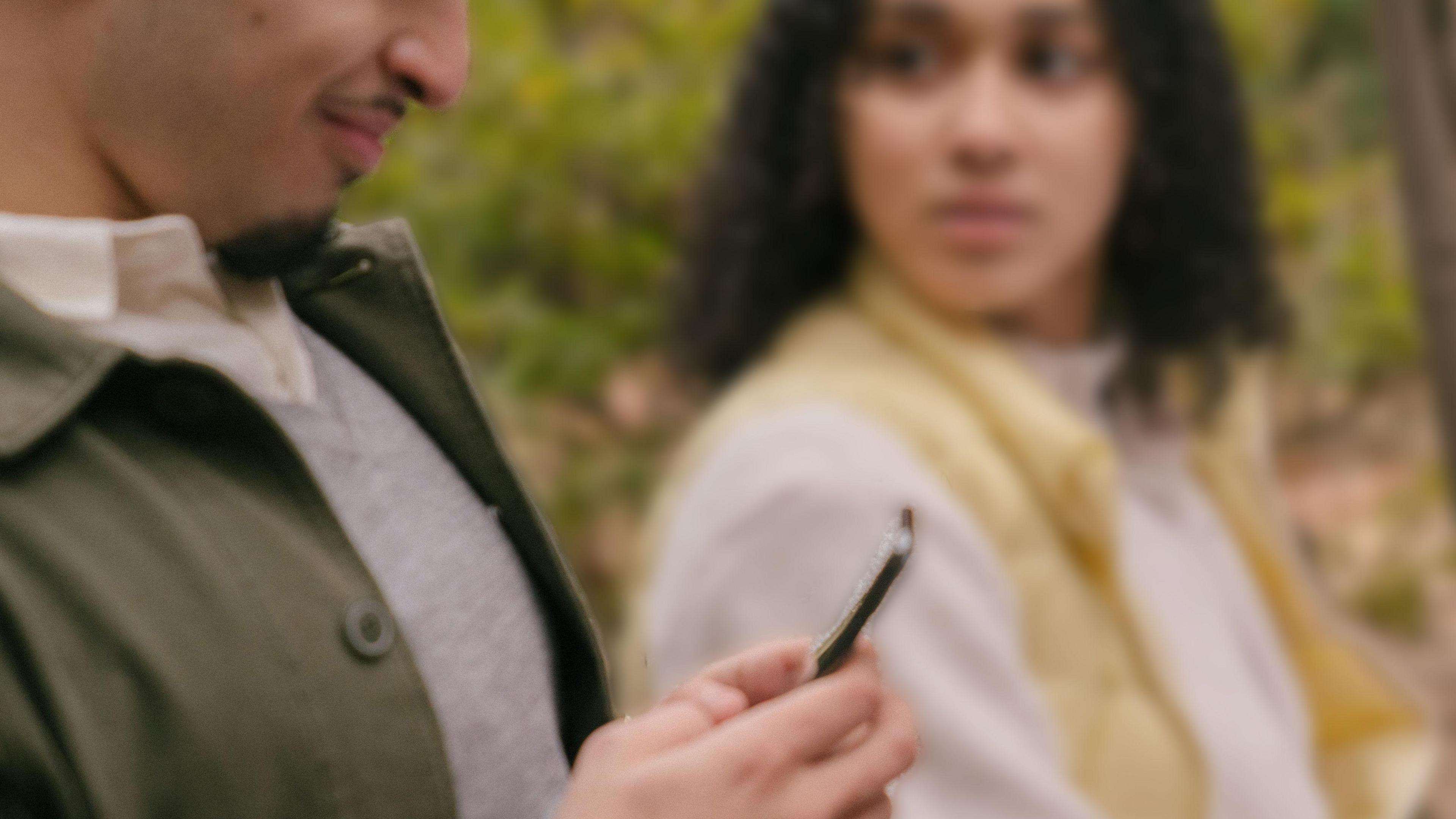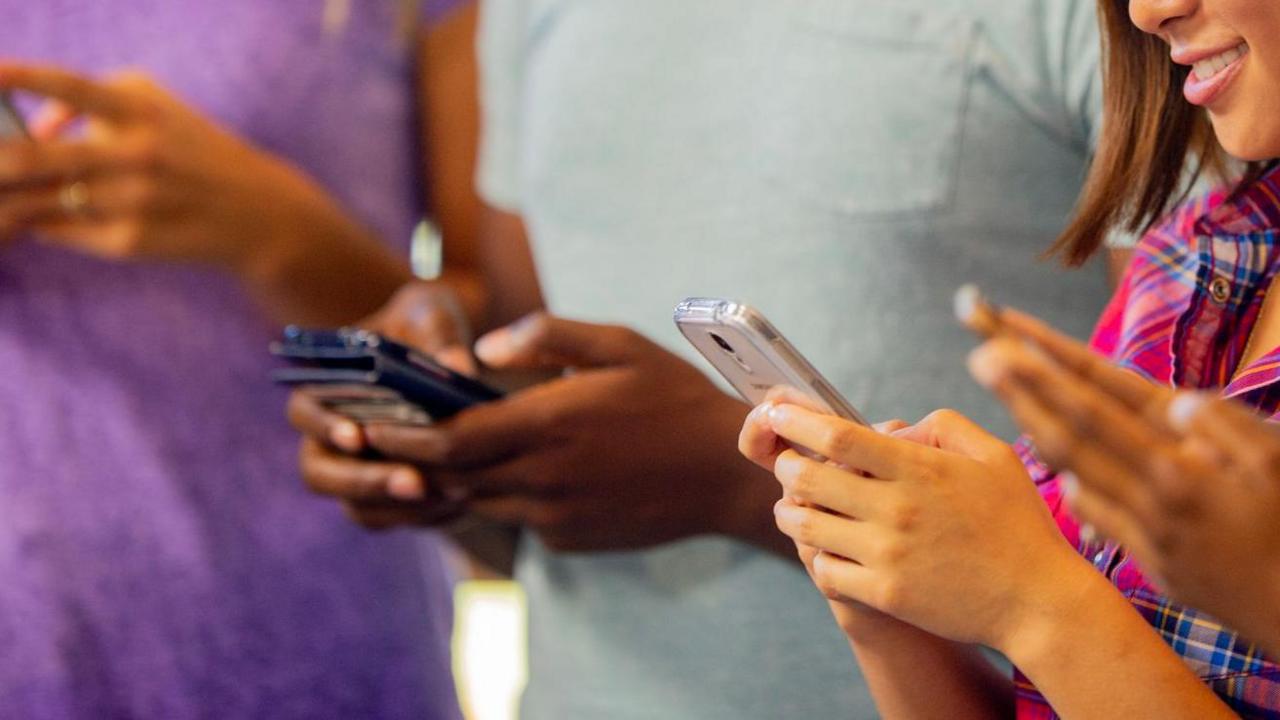Research on 'phone snubbing' in relationships

"Phone snubbing" is when someone gets distracted by their phone during a face-to-face social interaction
- Published
A university has published a study on the impact of "phubbing" in relationships.
Also called "phone snubbing", it is the act of someone getting distracted by their phone during a face-to-face social interaction.
It is an all-too-common scenario, according to University of Southampton researchers, who found that people with emotional insecurities were even more affected when their partners chose their phones over them.
Study co-author Dr Claire Hart said this could lead to "cycles of conflict and withdrawal".

The research found people may retaliate to phubbing by reaching for their own phones
The researchers wanted to find out how people responded to being "phubbed", particularly those with high attachment anxiety who fear abandonment and crave reassurance, and those with high attachment avoidance who are uncomfortable with closeness.
They asked 196 adults in relationships to complete a 10-day diary, detailing how often their partner had phubbed them, how they felt, and how they responded and why.
The diaries showed that people with high attachment anxiety reacted more strongly than more secure people.
They also reported feeling more depressed, and having lower self-esteem and greater resentment on days they had been phubbed.
They were also more likely to pick up their own phones in response, to get support and approval from others.
The study also found those with high attachment avoidance were less likely to confront their partner about their phone use, and when they retaliated in kind, it was often to seek approval rather than connection.
'Downward spiral'
Dr Hart said: "It might seem trivial, but in relationships these small moments can mount up, creating a sense that your partner's attention is elsewhere and that you're less valued."
Co-author Dr Kathy Carnelley said while picking up your own phone in retaliation may offer "immediate comfort", it could also "lead to a downward spiral of poor interactions".
Dr Hart said there were simple steps couples could take to improve their relationships.
"Creating phone-free zones at mealtimes or before bed and discussing phone boundaries openly can help both partners feel respected," she said.
"If you must check your phone, acknowledge the interruption, explain why and return your attention quickly."
Get in touch
Do you have a story BBC Hampshire & Isle of Wight should cover?
You can follow BBC Hampshire & Isle of Wight on Facebook, external, X (Twitter), external, or Instagram, external.